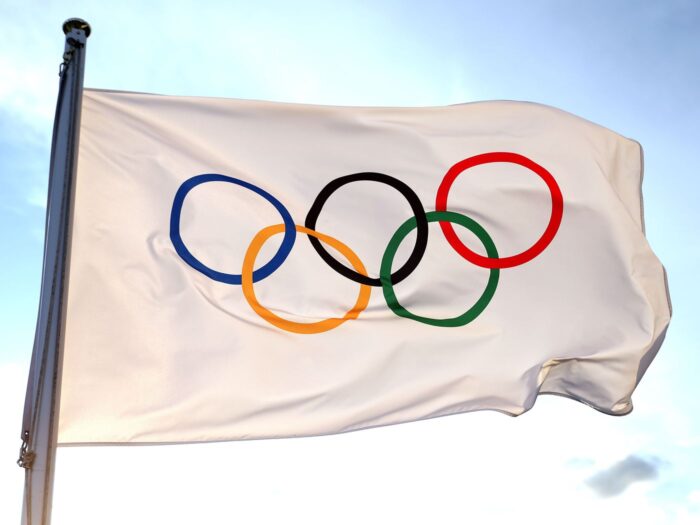Olympics: Too Much Hype, Too Much Money, Too Much Doping

Today’s Olympics are a far cry from its ancient origins. In ancient Greece, athletic competitions among well-paid prized athletes took place at many locations, but by the 6th Century (BCE) four, those in Olympia, Delphi, Nemea and Cornith were most prestigious. The games at Olympia in the city-state of Elis took place every four years between August 6th and September 19th, held in honor of Zeus.
When Greece was conquered by Rome mid 2nd century (BCE), athletic competitions became less valued. While Greeks considered their participation as competition between athletes, Romans preferred gladiators and chariot races as public entertainment. Today’s Olympics are a combination of the two.
The modern Olympic events were initiated primarily by two men, Pierre, baron de Coubertin born in Paris 1863 and Doctor William Penny Brookes born in Much Wenlock, England, 1809. Brookes knew of Olympic revivals held in Athens starting in 1859 by Evangelis Zappas inspired by the Greek poet Panagiotis Soutsos. Brookes initiated a British Olympiad, London, 1866. It soon faulted and about 20 years later he argued for an international competition in Athens. Coubertin, influenced by, but not acknowledging Brookes, organized his own international conference in Paris in 1892 and proposed an International Olympiad that would encourage world peace.
Coubertin along with a Greek colleague Dimitrios Vikelas, first president of the newly formed International Olympic Committee (IOC), sponsored an Olympiad in Athens in April 1896 with an opening overseen by the King of Greece. Initially located in Paris the IOC was moved by Coubertin to its present location, Lousanne Switzerland during W.W.I. The IOC has a maximum of 115 members, with representation by Olympic athletes, National Olympic committees, and international sports federations; it is run by an executive committee of 15. Coubertin succeeded Vikelas in 1896 and served till 1925. Summer games have occurred every 4 years except during war with cities around the world competing for hosting the event at the cost now of billions of dollars. Winter games were introduced in 1924 becoming between summer games in 1994 (Ref.1).
The IOC, a Swiss non-for profit, is a money-making colossus, with broadcast and consumer products companies pouring billions into its coffers. NBC paid $7.75 billion to the IOC in 2014 for exclusive U.S. broadcast rights through 2032. Other broadcasters have paid for rights into their countries. Consumer brand long-term partnerships starting in 1985 have enlisted 13 top tier deals paying about one $billion/year. Amazingly, unlike any other sporting events, the athletes cost the IOC almost nothing, as they are either paid paltry amounts by their national Olympic committees (NOC), some of which comes from the IOC, or are professionals paid by their home teams. Host cities are now losing billions of dollars on summer and winter events, with the IOC contributing an inadequate $1.5 billion to defray expenses. Long term if the games are to survive, an alternative hosting solution must be found (Ref.2,3,4).
Tragedy, cheating, and scandals are a part of the modern Olympic experience. The most tragic was the Munich Massacre during the return of the Olympics to Germany after the 1936 Hitler dominated debacle when on September 5, 1972, heavily armed Palestinian terrorists killed some and held hostage the rest of the Israeli delegation demanding release of their brethren in Israel. Israel refused, terrorists and hostages were then transported to a nearby airport where a poorly executed rescue attempt resulted in the deaths of all the remaining Israelis and several of the terrorists. The three surviving terrorists were later released from a German jail in exchange for a high-jacked plane.
Episodes of cheating by judges and athletes, bribing of IOC members by cities vying for the games, state sponsored doping, and abuse of athletes have been well described. The latest example of doping was at the recent Beijing Winter Olympics with the favorite Russian female figure skater Kamila Valieva found to be positive for a banned substance, ironic as the Russian team was sponsored by the “Russian Olympic Committee” as Russia itself was banned for previous doping (Ref.5,6,7).
The Olympic experience is long overdue for radical reform. Locations should be permanent, possibly Athens in summer and Switzerland in winter. The IOC should lose its non-for-profit status, pay taxes, and offer shares on stock exchanges adding to scrutiny. Athletes should be paid by the IOC as they prepare for the games. Doping would be greatly curtailed if medal counts were not tracked, and national anthems not performed at the medal ceremonies. All the participants in each competition should attend the medal ceremonies and applaud the winners in a collegial demonstration of sport.
- David C. Young and Harold Maurice Abrahams, Olympic Games, Encyclopedia Britannica, August 19, 2021, available at: https://www.britannica.com/sports/Olympic-Games (accessed 3 March 2022)
- Stu Woo, The Economics of the Olympics, WSJ, February 7, 2022, available at: https://www.wsj.com/video/series/the-economics-of/the-olympics-business-model-why-multi-year-media-deals-matter/24BCE03F-DF70-414E-94DD-15DA2B1CE233 (accessed March 1, 2022)
- Sophie Roppe, Progress Without Profit: The IOC benefits itself at the Expense of athletes, Daily Trojan, August 16, 2021, available at: https://dailytrojan.com/2021/08/16/progress-without-profit-the-ioc-benefits-itself-at-the-expense-of-athletes/ (accessed March 2, 2022)
- Victor Matheson and Andrew Zimbalist, Why Cities No Longer Clamor to Host the Olympic Games, Georgetown Journal of International Affairs, April 19, 2021, available at: https://gjia.georgetown.edu/2021/04/19/why-cities-no-longer-clamor-to-host-the-olympic-games/ (accessed March 4, 2022)
- Russell McPhedran, Munich Massacre, The Sydney Morning Herald, May 24,2021, available at: https://www.history.com/topics/1970s/munich-massacre-olympics (accessed March 4, 2022)
- Top Ten Olympic Scandals, Listverse, August 1, 2021, available at: https://toptenlists.org/top-10-olympic-scandals-listverse/#:~:text=Top%2010%20Olympic%20Scandals%20%E2%80%93%20Listverse.%201%2010,Bribes.%205%206%20Kerrigan%20and%20Harding.%20More%20items (accessed March 3, 2022)
- George Kantcher, Ben Cohen and Louise Radnofsky, A Disturbing Night of Olympic Figure Skating Exposes the Dark Side of the Rink, WSJ, February 18, 2022, available at: https://www.wsj.com/articles/figure-skating-beijing-olympics-valieva-11645186054 (accessed March 2, 2022)








